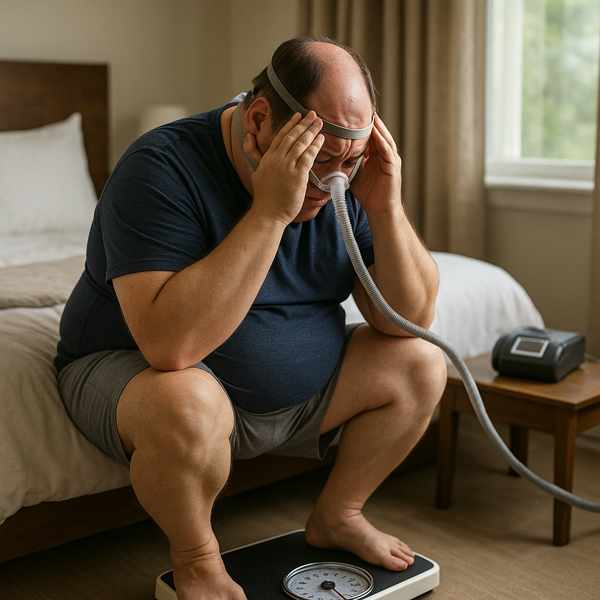
Many people with sleep apnea experience snoring, daytime fatigue, and health complications.
While not always a complete cure, weight loss often lowers the impact of sleep apnea significantly.
Causes and Symptoms of Sleep Apnea
Sleep apnea occurs when breathing repeatedly stops and starts during sleep.
Common symptoms include:
- Often reported by sleep partners
- Interrupted breathing patterns
- Excessive daytime tiredness
- Morning headaches or dry mouth
The Link Between Weight and Sleep Apnea
Carrying extra weight, especially around the neck and upper body, can put pressure on the airway during sleep.
Key risk factors include:
- High BMI (Body Mass Index)
- Narrows the airway path
- Poor muscle tone in the throat
Is It Possible to Eliminate Symptoms Naturally?
In many cases, losing weight can dramatically reverse or manage sleep apnea symptoms.
Possible benefits of weight loss:
- Less airway obstruction
- Reduced risk of waking up during sleep
- Less need for CPAP machines or surgery
- Improved sleep quality and energy
However, weight visit loss may not cure sleep apnea in all cases — especially if anatomical issues or severe OSA are present.
Realistic Expectations
Even modest weight loss can have a big impact.
Tips:
- Focus on progress, not perfection
- Sustainable changes make a difference
- Track your sleep changes
Natural Weight Loss Tips for Better Sleep
Effective strategies:
- Eat a balanced, whole-food diet
- Boosts metabolism and burns fat
- Sleep on your side
- Avoid alcohol and sedatives
Working with a nutritionist or sleep specialist can provide more personalized support.
Other Treatments Besides Weight Loss
If symptoms continue, talk to your doctor about other options such as:
- CPAP therapy (Continuous Positive Airway Pressure)
- Custom-fitted mouthpieces to reposition jaw and tongue
- Surgery in severe cases
Final Thoughts on Weight Loss and Sleep Apnea
For those whose apnea is linked to weight, shedding pounds is often a powerful, non-invasive solution.
Talk to your healthcare provider, make informed decisions, and take proactive steps toward better health and rest.